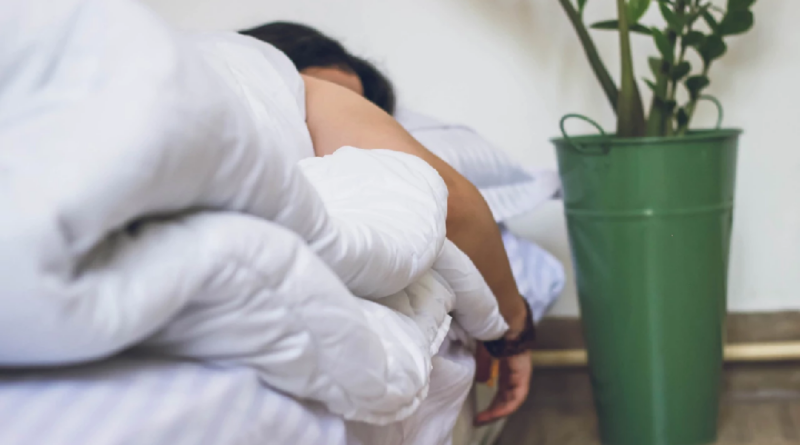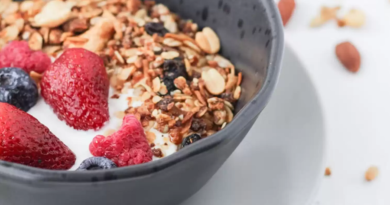Sleep Hygiene: Your Ultimate Guide to Better Mental and Physical Health
Ever feel like you’ve done everything right—yet you still wake up groggy and drained? You might be missing the critical element of quality rest: sleep hygiene. This guide is here to walk you through all the things you never realized play a part in helping you sleep more soundly. We’ll cover the basics, go into lesser-known tips, and explore research-backed methods that can transform your nights. By the end, you’ll know exactly how to upgrade your sleep routine for both your mind and body.
Table of Contents
1. What Is Sleep Hygiene and Why Does It Matter?
You may have heard “sleep hygiene” mentioned in health articles or in conversation with your doctor. But what exactly is it? Sleep hygiene refers to the habits, routines, and environmental factors that shape the quality of your sleep. It is not just about going to bed at a certain time; it’s about building a lifestyle that supports optimal rest.
Why does this matter so much? Good sleep hygiene can lead to better concentration, enhanced mood stability, and increased overall health. If you’re continually tossing and turning at night, or if you wake up feeling exhausted, there’s a good chance your sleep hygiene needs an overhaul.
Some people think sleep hygiene is merely about keeping your bedroom dark or wearing comfortable pajamas. But it goes deeper. It spans the food you eat, the routines you follow before bedtime, and even the small details like lighting and temperature. Wondering if it’s worth the effort to tweak these details? Let’s dig into how good sleep (or poor sleep) affects your mental and physical well-being.
2. How Sleep Affects Your Mental Health
Let’s talk about your mind. Have you ever noticed that you’re more irritable or anxious when you’ve not slept well? Science supports this observation. According to the National Institute of Mental Health, insufficient sleep can amplify symptoms of anxiety and depression. On the flip side, achieving consistent, high-quality sleep promotes better emotional regulation and sharper decision-making.
Mood and Emotional Balance
A good night’s sleep allows the brain to reset. During REM (rapid eye movement) sleep, your brain processes emotions and memories. This is one reason people say, “Let me sleep on it,” before making big decisions. By giving your brain time to handle emotional data overnight, you reduce the intensity of emotional highs and lows the next day.
Stress and Anxiety Reduction
Would you like to feel less stressed at work? Adequate rest can help. Sleep deprivation prompts the body to produce higher levels of cortisol, the stress hormone. This hormonal imbalance can leave you feeling perpetually anxious or overwhelmed. By ensuring you get enough rest, you help regulate cortisol levels, making it easier to handle daily stressors.
Cognitive Function
Ever try to solve a difficult problem when you’re sleep-deprived? It’s often a losing battle. The Centers for Disease Control and Prevention (CDC) highlights that consistent, high-quality sleep improves attention span and problem-solving skills. With better cognitive function, you’re more equipped to tackle challenges in both your personal and professional life.
3. How Sleep Affects Your Physical Health
Healthy sleep benefits more than just your mood. It directly influences key aspects of your physical body, from heart health to weight management. Do you find this surprising?
Cardiovascular Health
The American Heart Association points out that chronic sleep deprivation can elevate your risk of high blood pressure and heart disease. When you’re asleep, your heart rate and blood pressure dip, giving your cardiovascular system time to recover. If you’re not resting long enough, your heart doesn’t get this vital period of relaxation.
Immune System
Feel like you catch colds more often when you’re not sleeping well? You might not be imagining it. Your immune system relies on restful periods to regenerate and produce protective substances. Research published in peer-reviewed journals, such as Sleep, shows that individuals who log fewer than six hours of sleep a night are more prone to infections.
Hormonal Balance and Weight Control
Lack of rest throws hormone levels off, including those that control hunger. If you find yourself craving sugary or fatty foods after a poor night’s sleep, it could be because ghrelin (the hunger hormone) spikes and leptin (the fullness hormone) decreases. Over time, these disrupted signals can lead to steady weight gain.
Muscle Repair and Recovery
During deep sleep, your body is busy repairing muscle tissue and synthesizing proteins. This is why athletes emphasize getting enough rest—it’s as important as working out and following a proper diet. If you exercise regularly but still feel sore all the time, improving your sleep hygiene might accelerate your recovery.
4. Setting Up a Consistent Sleep Routine
A consistent routine doesn’t just happen. It requires intention and planning.
Choose a Reasonable Bedtime
What time do you typically go to bed? Keep it constant—even on weekends. This signals your brain and body that it’s time to wind down. If you stay up late Saturday and sleep in Sunday, you can disrupt this delicate cycle. It might sound strict, but it pays off when Monday morning doesn’t feel like a struggle.
Wake Up at the Same Time
Equally important is setting a non-negotiable wake-up time. Consistency in waking helps regulate your internal clock (also known as the circadian rhythm). You might need an alarm at first, but after a while, your body may wake itself naturally.
Small Wins for Building a Habit
Ever find yourself lying in bed, scrolling on your phone? Instead, replace this habit with a short routine. For example, read a single chapter of a calming book. Or do a few minutes of mindful breathing. Making small, manageable shifts can create a ripple effect that stabilizes your entire night’s rest.
5. Designing the Optimal Sleep Environment
The bedroom itself can make or break your sleep quality. You don’t need to invest in expensive gadgets or overhaul everything at once. Small changes can have a big impact.
Mattress and Pillows
Is your mattress over seven years old? Consider upgrading if it’s sagging or uncomfortable. A mattress that supports your body keeps you from tossing and turning. Pillows, too, can be customized based on whether you sleep on your back, stomach, or side.
Lighting
If you can, make your bedroom pitch black. Invest in blackout curtains or use an eye mask. Even small lights from electronic devices can trick your brain into thinking it’s time to wake up. Studies, such as those in the journal Clocks & Sleep, indicate that exposure to light at night can disrupt the production of melatonin, the hormone that helps you sleep.
Temperature
Don’t you love a cool room when snuggling under warm blankets? This isn’t just a preference; cooler room temperatures (around 60–67°F or 15.5–19.4°C) help your body drop to the core temperature needed to fall asleep. Turn down the thermostat or open a window to let in fresh air.
Noise Control
Do outside noises or a snoring partner keep you up? Consider earplugs, a white noise machine, or a fan that produces steady background noise. This consistent sound helps mask sudden noises that may disrupt your sleep stages.
6. Food, Drink, and Their Role in Sleep Quality
Have you ever thought about how your dinner or late-night snack might affect your sleep? It’s time to look at what you’re putting into your body before bedtime.
Caffeine Curfew
Caffeine can stay in your system for hours, sometimes up to six or more. If you drink coffee, tea, or soda in the late afternoon or evening, you might still have caffeine racing through your veins at bedtime. A simple trick: set a “caffeine curfew” about eight hours before you plan to sleep.
Alcohol: Friend or Foe?
While some people sip a glass of wine to relax before bed, alcohol can actually interrupt deeper sleep stages. According to the National Sleep Foundation, you might fall asleep faster after drinking, but you’ll likely wake up in the middle of the night or fail to experience high-quality sleep cycles.
Balanced Evening Meals
Eating a heavy meal right before bed can strain digestion. On the other hand, going to bed starving can leave you feeling restless. Aim for a balanced evening meal with protein, complex carbohydrates, and healthy fats. If you need a snack, consider something light like a small portion of yogurt or a handful of nuts. A balanced approach stabilizes blood sugar and keeps sleep disruptions at bay.
Supplements
Have you heard of magnesium or melatonin for sleep? Some people find these supplements beneficial. Magnesium can relax muscles, while melatonin helps regulate your circadian rhythm. Always speak with your healthcare provider before starting any supplement, though. Individual responses vary, and dosage matters.
7. Pre-Bedtime Activities That Promote Rest
An hour or two before bedtime can set the tone for your entire night. Think of it as a wind-down period.
Unplugging from Screens
Are you scrolling through social media or replying to emails up until the moment your head hits the pillow? Electronic screens emit blue light that tricks your brain into thinking it’s daytime. Using the “Night Mode” feature on devices can help, but the best solution is a full digital detox at least 30 minutes before bed. If you must use devices, consider wearing blue-light-blocking glasses.
Mindful Practices
How about a quick breathing exercise? Try inhaling for four seconds, holding for four seconds, and exhaling for four seconds. This simple rhythm can help slow your heartbeat and clear mental clutter. Some individuals also enjoy light stretching or gentle yoga poses to relieve tension in the neck, shoulders, and back.
Journaling for Peace of Mind
Have you ever climbed into bed only to have your mind race with to-do lists? Spend five minutes writing down your tasks or worries before bed. This practice, sometimes referred to as a “brain dump,” can help you let go of the day’s concerns. Once it’s on paper, your brain may feel it can relax.
8. Out-of-the-Box Hacks for Better Sleep
Now that we’ve covered the foundations, let’s explore a few unconventional tricks that might take your sleep to the next level. Curious to try something new?
Aromatherapy
Do you love certain scents? Lavender, chamomile, and cedarwood have been linked to improved relaxation. An essential oil diffuser can subtly fill your bedroom with a calming aroma. If you don’t have a diffuser, try adding a drop of lavender oil to your pillowcase. Just make sure you’re using high-quality, skin-safe oils.
Acupressure Mats and Weighted Blankets
Have you seen those spiky mats advertised for relaxation? They’re called acupressure mats, and while they may look uncomfortable, they often promote tension release. Weighted blankets do a similar job by applying gentle, even pressure across your body. Some find these tools help calm a restless mind and induce a feeling of security.
Progressive Muscle Relaxation
This technique involves tensing and then relaxing each muscle group in your body, starting from your toes and working your way up to your face. It might feel odd at first, but many people say it helps them drift off faster. You can find guided scripts online or even record yourself walking through the steps.
Waking Up in the Middle of the Night? Embrace It
If you wake up at 2 a.m. and can’t fall back asleep, avoid lying in bed feeling frustrated. Instead, get up and do a calming activity, like reading or knitting, in dim light. Once you start feeling drowsy again, head back to bed. This approach helps you associate your bed with sleep, not with restlessness.
9. Overcoming Common Sleep Disruptors
Even if you’ve set up the perfect routine, life can throw curveballs. Let’s address some common sleep disruptors, from travel to mental chatter.
Jet Lag
Are you a frequent traveler? Jet lag can ruin your sleep schedule. Try gradually adjusting your bedtime by 15–30 minutes in the days leading up to your trip. Some people also use melatonin supplements for a few nights to reset their internal clocks faster. Staying hydrated and exposing yourself to natural light at your destination also helps.
Shift Work
Working odd hours is tough on the body’s circadian rhythm. If you’re a shift worker, stick to a consistent sleep schedule even on your days off. Use blackout curtains to mimic nighttime when you need to sleep during the day. And consider bright, white light during your “morning” routine to help you wake up.
Nighttime Anxiety
Is your mind racing with worries about tomorrow? Practice the journaling habit or use a guided relaxation app. Some find relief in a repetitive mental phrase or mantra—like “I am calm, I am safe”—to break the cycle of anxious thoughts.
Noisy Neighbors or Environment
If external noise disrupts your sleep, invest in noise-canceling headphones or earplugs. White noise machines (or a simple fan) can mask street noise or neighbors’ chatter. If the noise is from within your home—like roommates who watch TV late—have a polite conversation about setting shared quiet hours.
10. Assembling Your Sleep Hygiene Toolbox
At this point, you’ve explored a wide range of tips and strategies. Which ones resonate with you the most? Not every method works for every person, so it’s important to create a personalized plan.
Here’s a quick checklist to guide you:
- Bedtime Consistency: Pick a realistic bed and wake time, and stick to it.
- Bedroom Setup:
- Comfortable mattress suited to your sleeping style.
- Pillows tailored to side, back, or stomach sleeping.
- Darkness: Use blackout curtains or an eye mask.
- Temperature: Aim for a cool 60–67°F (15.5–19.4°C).
- Noise: Use earplugs or white noise if needed.
- Food and Drink:
- Limit caffeine intake, especially after 2 p.m.
- Drink alcohol in moderation, if at all, before bed.
- Don’t go to bed overly hungry or overly full.
- Wind-Down Routine:
- Avoid screens for at least 30 minutes before bedtime.
- Try simple meditation or journaling.
- Keep a physical book or relaxing hobby on hand.
- Advanced Hacks:
- Experiment with aromatherapy, weighted blankets, or acupressure mats.
- Learn a relaxation technique like progressive muscle relaxation.
- If you wake up in the middle of the night, move to another room until you’re sleepy again.
The key is to test and tweak. Maybe you’ll discover that reading a physical book is your secret weapon for better sleep. Or perhaps lowering your bedroom temperature by just a couple of degrees will be a game-changer. Keep an open mind, take notes on what’s working, and don’t be afraid to drop strategies that don’t feel right for you.
11. Conclusion
Quality sleep is a cornerstone for better mental and physical health, yet many people overlook its importance. This guide has taken you through everything from crafting a set bedtime routine to using out-of-the-box methods like acupressure mats. It also gave you a detailed look at how proper rest can sharpen your mind and strengthen your body.
Now it’s your turn. How will you apply these strategies in your daily life? Will you focus on creating a cozy bedroom, or will you shift your eating patterns? You don’t have to transform everything overnight. Begin with one or two changes and see how you feel. Keep building until good sleep hygiene becomes second nature.
Whether your goal is to lower stress, improve cognitive function, manage weight, or simply feel more energized, proper sleep is a powerful ally. By using the tips in this guide, you’re already taking a significant step toward a happier, healthier life. Sweet dreams!
12. References
- Centers for Disease Control and Prevention (CDC). “How Much Sleep Do I Need?” Accessed March 2025.
- National Institute of Mental Health. “What is Mental Health?” Accessed March 2025.
- American Heart Association. “Lack of sleep linked to higher risk of heart disease.” Accessed March 2025.
- National Sleep Foundation. “Alcohol and Sleep.” Accessed March 2025.
- “Progressive Muscle Relaxation.” Sleep, vol. 38, no. 2, 2021, pp. 237–246.
- Clocks & Sleep. “Effects of Light Exposure on Circadian Rhythms.” Accessed March 2025.




